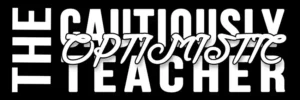Embarking on a career in education, particularly as a first-year teacher, involves not only mastering the art of teaching but also navigating the intricate process of job interviews. First-year teachers often face a unique set of challenges during interviews. Without an extensive background in classroom management or a portfolio of teaching experiences, they might feel at a disadvantage. However, this is precisely where the opportunity to showcase potential becomes crucial.
The importance of demonstrating your potential, despite limited experience, cannot be overstressed. It’s about conveying your enthusiasm for teaching, your adaptability, and your eagerness to grow professionally. This initial impression can significantly influence the interviewers’ perception, setting you apart from other candidates.
Understanding What Schools Look For
Schools and educational institutions are not merely looking for experienced teachers; they are searching for educators who bring fresh perspectives, innovative ideas, and a strong commitment to student success. The key qualities often sought in new educators include:
- Passion for Teaching: A genuine enthusiasm for educating and making a difference in students’ lives.
- Adaptability: The ability to adjust teaching methods to meet the diverse needs of students.
- Lifelong Learner: A commitment to continuous personal and professional development.
- Collaboration Skills: The ability to work effectively with colleagues, parents, and the school community.
- Classroom Management: Basic understanding and strategies for managing a classroom effectively.
Aligning your skills and aspirations with the school’s vision and values is essential. This alignment demonstrates that you are not just looking for any job, but you are specifically interested in contributing to the unique culture and goals of that particular school. Researching the school’s mission, teaching philosophy, and community involvement can provide valuable insights that enable you to tailor your responses and examples to resonate with the interview panel.
Preparing for the Interview

To prepare effectively for the interview:
Research the School and Its Culture: Beyond the mission statement, understand the school’s curriculum, extracurricular activities, and community involvement. This knowledge shows your interest and readiness to be a part of the school community.
Reflect on Your Educational Philosophy and Teaching Strategies: Be clear about your teaching philosophy. How do you see your role as a teacher? What are your beliefs about learning and student engagement? Be ready to discuss how your philosophy would translate into effective teaching strategies in the classroom.
Articulate Your Approach to Teaching: Practice how you would explain your approach to teaching. Use specific examples, such as how you would plan a lesson, assess student learning, or integrate technology in the classroom.
Demonstrating Your Potential
As a new teacher, your ability to demonstrate potential is crucial:
Highlight Student Teaching Experiences and Relevant Coursework: Discuss your student teaching experiences, focusing on what you learned and how you applied it. Mention any relevant coursework or workshops that have prepared you for a teaching career.
Discuss Potential Classroom Management Strategies: Even if you lack extensive experience, you can still discuss theoretical approaches or strategies you’ve learned through your education. Talk about how you would create a positive learning environment or handle challenging behaviors.
Showcase Adaptability and Eagerness to Learn: Schools value teachers who are adaptable and willing to grow. Share examples of how you’ve adapted to new situations or challenges in the past. Express your eagerness to learn and grow in your role as a teacher, showing that you view challenges as opportunities for professional development.
Common Interview Questions and Responses

For first-year teachers, anticipating and preparing for common interview questions is key to demonstrating readiness. Here are some sample questions and advice on crafting effective responses:
Question: “What inspired you to become a teacher?”
- Response Tip: Share a personal story or experience that sparked your passion for teaching. Be genuine and connect this inspiration to your long-term career goals.
Question: “How would you handle a challenging classroom situation?”
- Response Tip: Discuss a specific strategy or approach, such as establishing clear expectations or using positive reinforcement. Even hypothetical scenarios can demonstrate your problem-solving skills.
Question: “How do you plan to integrate technology into your teaching?”
- Response Tip: Mention specific tools or platforms you are familiar with. Explain how these technologies can enhance learning and student engagement.
Question: “Can you describe your classroom management style?”
- Response Tip: Be honest about your theoretical knowledge and any practical experience you have, even if it’s limited. Emphasize your willingness to learn and adapt.
Question: “How do you assess and track student progress?”
- Response Tip: Talk about various assessment methods, such as formative and summative assessments, and how you would use data to inform your teaching.
Leveraging Limited Experience
Turning your limited experience into an asset involves a strategic approach:
View Fresh Perspective as an Asset: Emphasize that as a new teacher, you bring fresh ideas and up-to-date pedagogical knowledge. Your recent training means you are well-versed in the latest educational theories and technologies.
Highlight Adaptability and Growth Mindset: Stress your adaptability and eagerness to learn from experienced colleagues. Show that you view your first year as a journey of growth and professional development.
Emphasize Soft Skills: Focus on soft skills like effective communication, enthusiasm for teaching, and creative problem-solving. Provide examples from your training, internships, or other experiences that demonstrate these skills.
Mention Transferable Skills from Other Experiences: If you have experience in other fields, draw parallels to skills that are transferable to teaching, such as teamwork, time management, and leadership.
Following Up After the Interview

The interview process doesn’t end when you leave the room. Proper follow-up can leave a lasting impression:
Send a Thank-You Note: Within 24 hours of the interview, send a personalized thank-you email or note. Express your gratitude for the opportunity and reiterate your enthusiasm for the role.
Reflect on the Interview: After the interview, take some time to reflect on what went well and what could be improved. Consider the questions that were asked and your responses to them. This reflection is a learning experience that can be invaluable for future interviews.
Stay Patient and Professional: The hiring process can take time. Stay patient and maintain a professional demeanor in all communications. If you haven’t heard back within the timeframe provided, it’s appropriate to send a polite follow-up email inquiring about the status of your application.
Conclusion
As a first-year teacher, it’s natural to feel a mix of excitement and anxiety about interviewing for your first teaching position. Remember, every seasoned educator has been in your shoes. Your unique perspective, fresh ideas, and enthusiasm for teaching are invaluable assets. Embrace these qualities and let them shine through in your interview.
Interviews are as much an opportunity for you to learn about a school as they are for the school to learn about you. Approach each interview as a chance to grow and refine your professional persona. Even if you don’t get the first position you interview for, each experience is a stepping stone towards finding the right fit.

